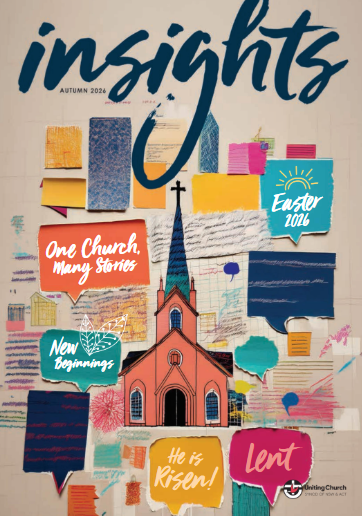A recent report from Wesley Mission has found that three out of four formally mentored young people have been helped by the experience. Museum visits, goal setting guidance and simple encouragement from an older person can offer time out and stability. When done properly, it even has the power to change lives.
Give kids a chance: Seeing a better future with mentoring looks into the experiences of more than 250 young people in New South Wales aged 15-20, seeking their views on the role adult mentoring has played in developing their goals and plans.
The Wesley Mission report concluded that 80 per cent of those mentored say it has increased their self esteem and had a positive impact on their behaviour.
A mentor is defined as a person who can draw on their life experience and give advice, support and guidance to help examine priorities, set goals and overcome obstacles.
“Young people aged 15 to 25 face a time of profound personal change as they make the transition from youth to adulthood, and from school to further education, training and employment,” said Wesley Mission CEO, the Rev. Dr Keith Garner.
“This report confirms Wesley Mission’s experience that mentoring is one of the most effective means of supporting those who are unsure about their direction or at risk of dropping out.”
Among the other findings in Give kids a chance are:
- Fifty-three per cent of all young people have no real clarity about what they want to do in life and no clear plans for the next few years in terms of their career.
- A third of young people are hungry for more adult guidance and support than they currently receive.
- Between one-half and two-thirds of those mentored report positive outcomes with educational attainment, quality of relationships, employment prospects, anti-social behaviour and reduced smoking/drinking/drug use.
Wesley Mission runs a number of mentoring programs. Aunties & Uncles has provides ongoing support to younger children (aged 3-13) through pairing them with a volunteer “aunt” or “uncle”, while the EQUIP program connects young people in Western Sydney with an older adult volunteer.
In addition, many of Wesley Mission’s youth services incorporate informal mentoring approaches such as outreach centres, homelessness services, foster care programs and the Vision Valley recreation camp.
For the disadvantaged kids, Aunties & Uncles is a chance to experience a different life to the stressful one they usually lead at home. For the volunteers, the program is a way to give something back to a society that has been good to them.
“The parent, and it’s almost always a single mum, initially approaches us to ask if we can find a role model for their child,” manager Michelle Parrish said.
“If the child is comfortable with the idea, we’ll then match them with a stable and empathetic individual or couple who commit to building a long-term relationship based on mentoring.” Relationships must be one-on-one, non-judgmental and involve supporting and encouraging the child through periods of transition for a significant period.
Fun and trust
When staff ask the kids what they like best about the program, the response is almost always the same: it’s a chance to have some fun.
“Picture a nine-year-old living in a home where there is no father, mum might have mental health issues, there are young siblings who the child has to help with, there’s no money, food consists of pizzas and burgers, hygiene is not a priority, holidays are unheard of, and you begin to understand why the child might leap at the idea of a day out,” Ms Parrish said.
Such children often grow up in the narrow confines of their disadvantaged neighbourhood where their life consists of home, school and the street.
Aunties & Uncles gives them something to aspire to and also enables them to improve their own family life.
The other thing the kids report learning is how to trust adults. “Kids from these backgrounds often only see erratic behaviour from adults and become very wary,” said Ms Parrish. “The mentoring experience slowly restores their trust as they see what healthy relationships look like. This has enormous impact in enabling them to form stable relationships in later life.”
Seventy per cent of the children are still involved with their mentors well into their 20s, even though the program cuts out at 13. Other benefits for the kids include learning communication skills, how to better manage their emotions, and how to believe in themselves.
What shouldn’t be forgotten is that this program doesn’t replace the existing family but rather extends it.
“The parents who come to us for support are trying hard to give their kids an opportunity,” Ms Parrish said. “They love them but for one reason or another— mental illness, addictions, no relationship skills themselves — they can’t provide it. The mums know they are trapped in a sad life but don’t want their kids to be.”
The biggest hurdle to being able to offer more mentoring is, as always, lack of funds. The program currently has 183 kids on its waiting list but only enough funding to train and monitor 20 new volunteers.
“Young people, and especially those from disadvantaged backgrounds, often have a very narrow view of their options due to lack of guidance and advice,” Dr Garner said.
“Mentoring, quite literally, can help them see a different future.”





